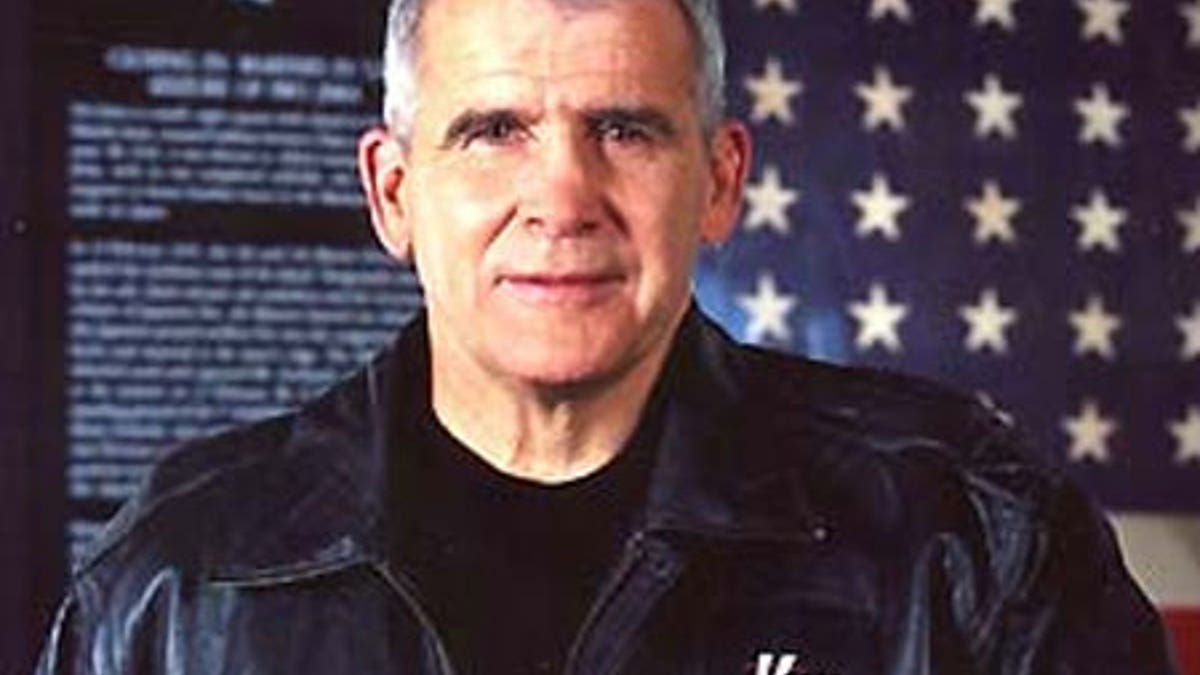
(FNC)
Copenhagen, Denmark – Here in Europe there is little media coverage about North Korea's May 25 nuclear weapons test or their increasingly frequent ballistic missile launches. There is even less mention of Pyongyang's decision to sentence two American female journalists to 12 years of "reform through hard labor" for "committing hostilities... and illegal entry."
North Korea's flagrant violations of international law, repeated breaches of United Nations resolutions, rampant human rights abuses, wholesale currency counterfeiting, transnational kidnappings, threats of aggression and active state sponsorship of terrorism simply do not raise European ire. It wasn't always that way.
• Catch the 'War Stories Classic: Freeing France From Hitler' Monday, June 15 at 3 a.m. ET
Fifty-nine years ago this month, the North Korean Peoples' Army (NKPA) smashed across the 38th Parallel, capturing Seoul, capital of the Republic of Korea. The battered South Korean army and their U.S. military advisers were quickly pushed into the "Pusan Perimeter" on the southern tip of the peninsula and President Harry Truman took the case to the United Nations Security Council.
American leadership and the absence of the Soviet ambassador, resulted in swift passage of Security Council Resolution 84. The measure — perhaps the last time in history that the U.N. acted with dispatch — authorized the use of force against the Democratic People's Republic of Korea (DPRK). During the bloody, three-year war that followed, troops from seven European countries — and 10 others from around the globe — fought beside U.S. soldiers, sailors, airmen and Marines in Korea, finally securing an armistice on July 27, 1953.
In the years since, the increasingly isolated patriarchal-Stalinist regime in Pyongyang has raised visceral hatred of the United States to the level of a new art form while systematically violating the terms of the armistice — and virtually every other agreement to which it is a party. In short, Pyongyang's past behavior is a prelude to present and future conduct.
On January 18, 1968, North Korean guerrillas attacked Seoul's Presidential Palace in an attempt to assassinate South Korean President Park Chung Hee. President Lyndon Johnson dispatched Cyrus Vance to discourage the South Koreans — with troops already committed in Vietnam — from undertaking a military response. Vance's mission was a "success" and no action — other than a strongly worded diplomatic note — was taken against Pyongyang.
Five days later, the USS Pueblo, a small, unarmed, U.S. Navy surveillance vessel was seized in international waters by North Korean patrol boats. Commander Lloyd, "Pete" Bucher and the 81 surviving members of the Pueblo crew were beaten and tortured by their captors while the Johnson administration in Washington, enmeshed in micro-managing the war in Vietnam, dithered. Finally, after a year of brutality — and threatening to shoot one member of his crew each day, starting with the youngest — Bucher signed a concocted "confession." Pyongyang promptly repatriated the crew, kept the Pueblo and use it as propaganda to this day.
The unwillingness to deal forcefully with the North Korean regime in 1968 set a precedent from which neither the West in general, nor the U.S. in particular, has ever recovered. North Korean leaders, emboldened by the West's flaccid response, stepped up their campaign of terror. Intelligence operatives and military units dispatched by Pyongyang have kidnapped hundreds of South Korean and Japanese mariners, fishermen and even civilian women and children. North Korean terrorists have made no less than three additional attempts to assassinate South Korean leaders. One of them, a 1983 bombing in Rangoon, killed 17 diplomats and members of South Korean President Chun Doo Hwan's security detail. In 1987, a bomb placed aboard Korean Airlines flight 858 killed all 115 aboard — including four Americans.
Over the course of two decades since, little has changed — except that North Korea has now acquired nuclear weapons and the means of delivering them. In 1994, after North Korea's "Great Leader," Kim Il-sung, died of a heart attack at the age of 82, the Clinton administration opened the door to direct negotiations with his son and successor, Kim Jong-Il. An "agreed framework" for dismantling North Korea's nuclear weapons program was negotiated and Secretary of State Madeleine Albright went to Pyongyang to dance at the anniversary of the "Great Revolution" where she famously proclaimed a "new beginning" for U.S. relations with the DPRK.
Like father, like son: the dictators played us for suckers. Neither the Clinton administration's initiatives nor those of his successor, President George W. Bush, produced any of the promised "breakthroughs" with Pyongyang. The Bush administration went so far as to remove the despots in Pyongyang from the U.S. "State Sponsors of Terrorism" list.
Despite Western deliveries of massive amounts of humanitarian food aid and fuel oil to ease starvation, the North Koreans accelerated their nuclear and ballistic weapons programs while the West vacillated. Now, the Obama administration is repeating the same mistakes. And President Obama — having vowed to "meet without pre-conditions" with brutal despots like Kim Jong-Il — runs the grave risk of making things even worse.
The capture of journalists Laura Ling and Euna Lee by a North Korean patrol along the Chinese-North Korean border on March 17 provided Pyongyang with two new "bargaining chips" for avoiding stronger sanctions and re-starting stalled "Six-Party Talks" with the U.S., Russia, China, Japan and South Korea. The harsh sentence meted out to the two women from Al Gore's "Current TV" operation is sure to expedite the opening of yet another "diplomatic initiative" — just what Pyongyang wants.
But, if Obama thinks that he can appease the outlaws in Pyongyang with an iPod or even a two-volume DVD collection of Hollywood's best movies, he is mistaken.
— Oliver North is a nationally syndicated columnist, the host of "War Stories" on FOX News Channel and the author of "American Heroes."





















